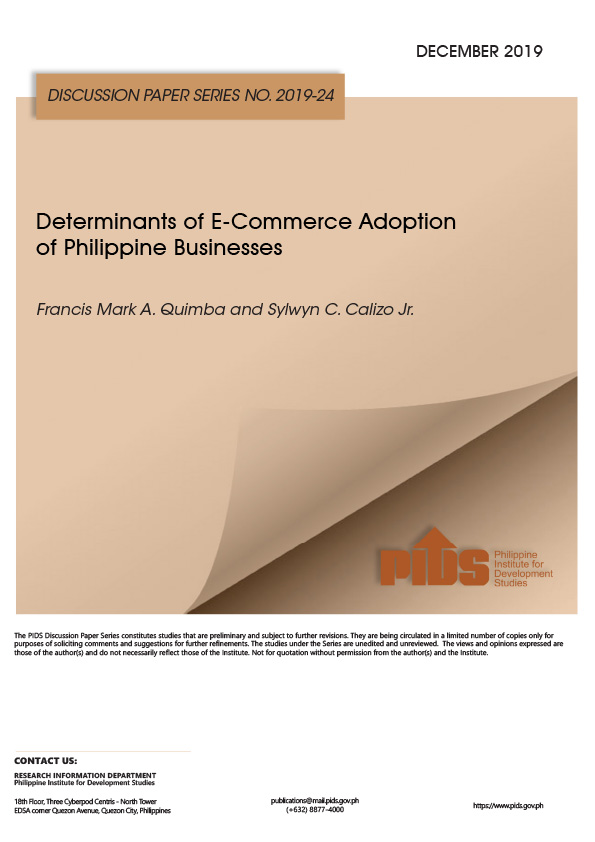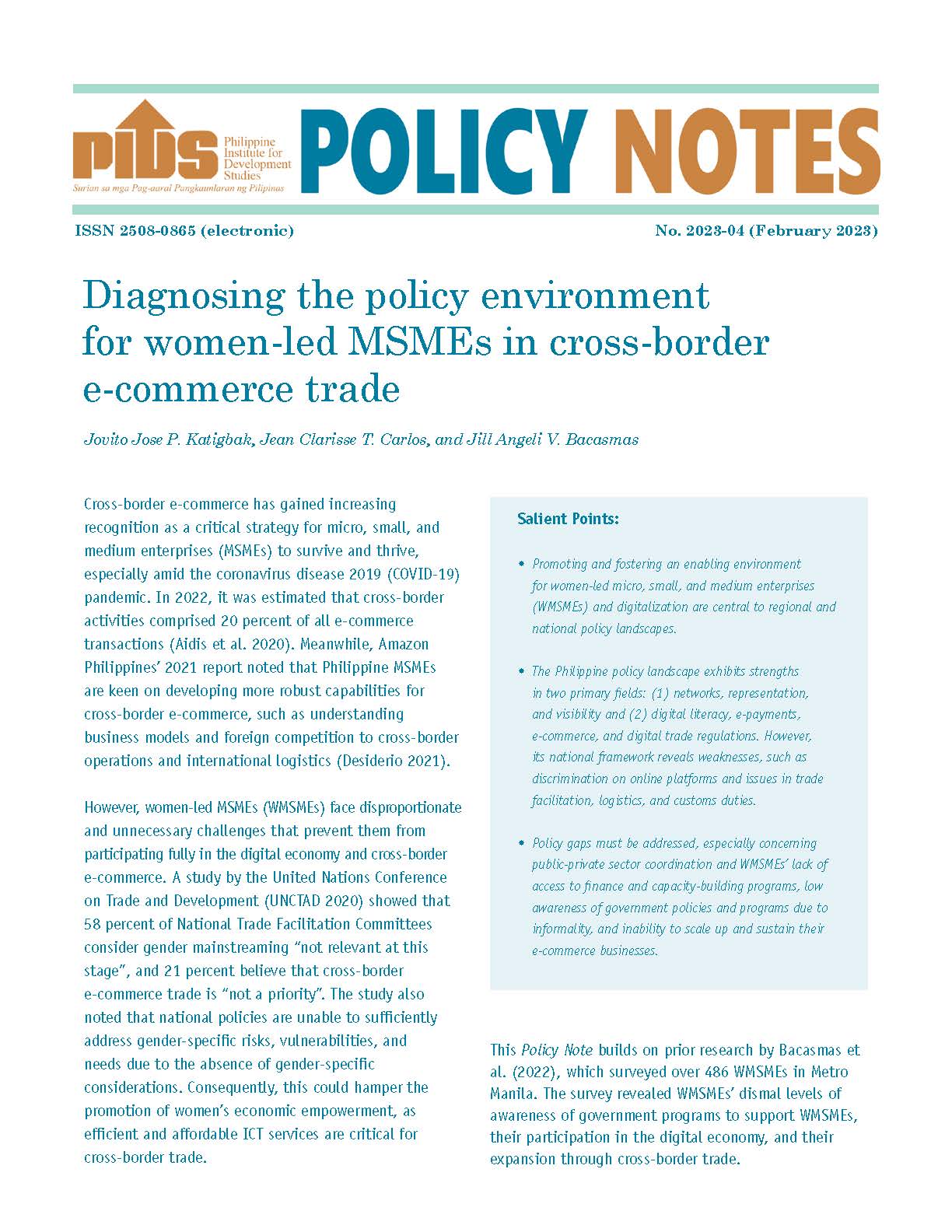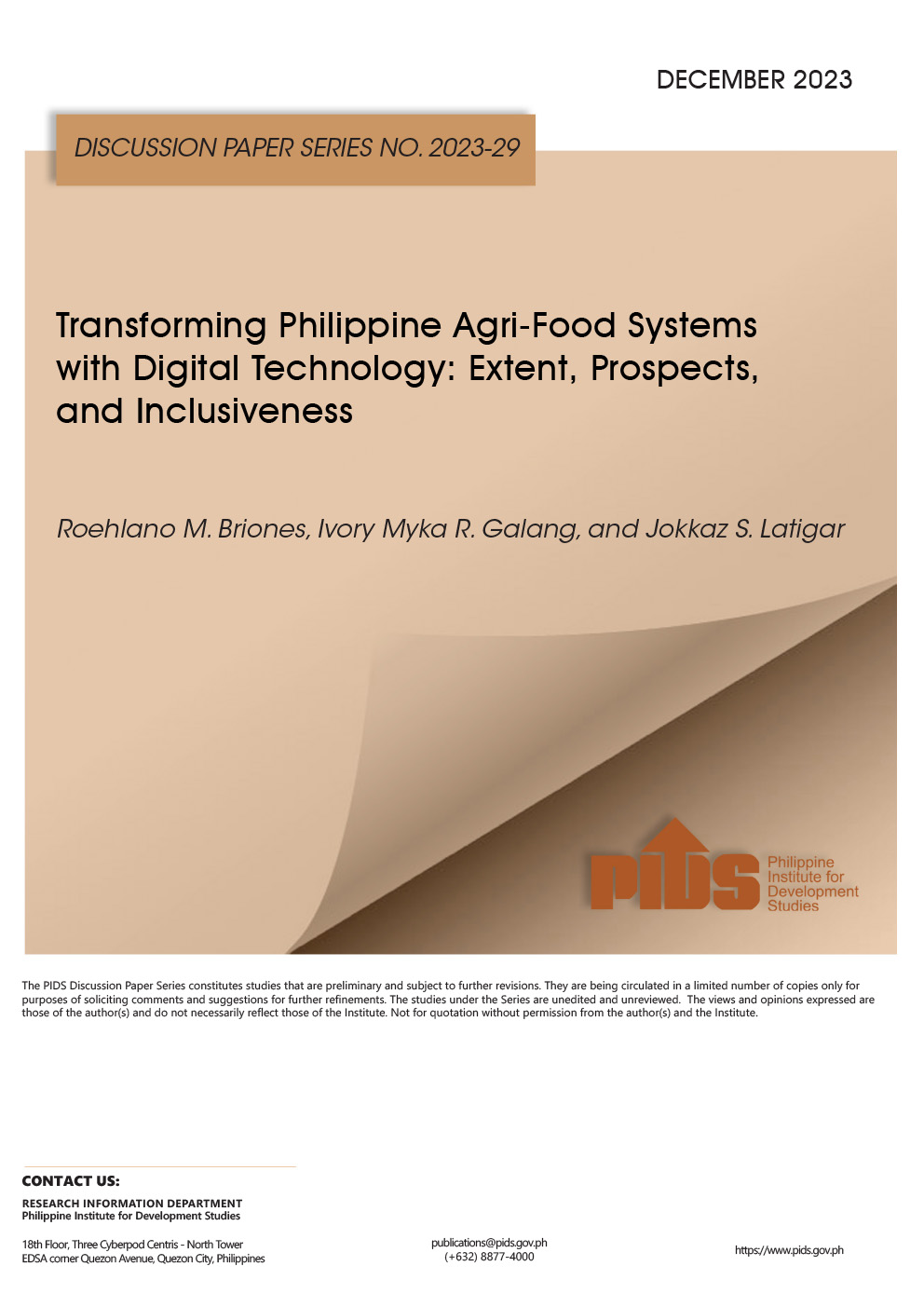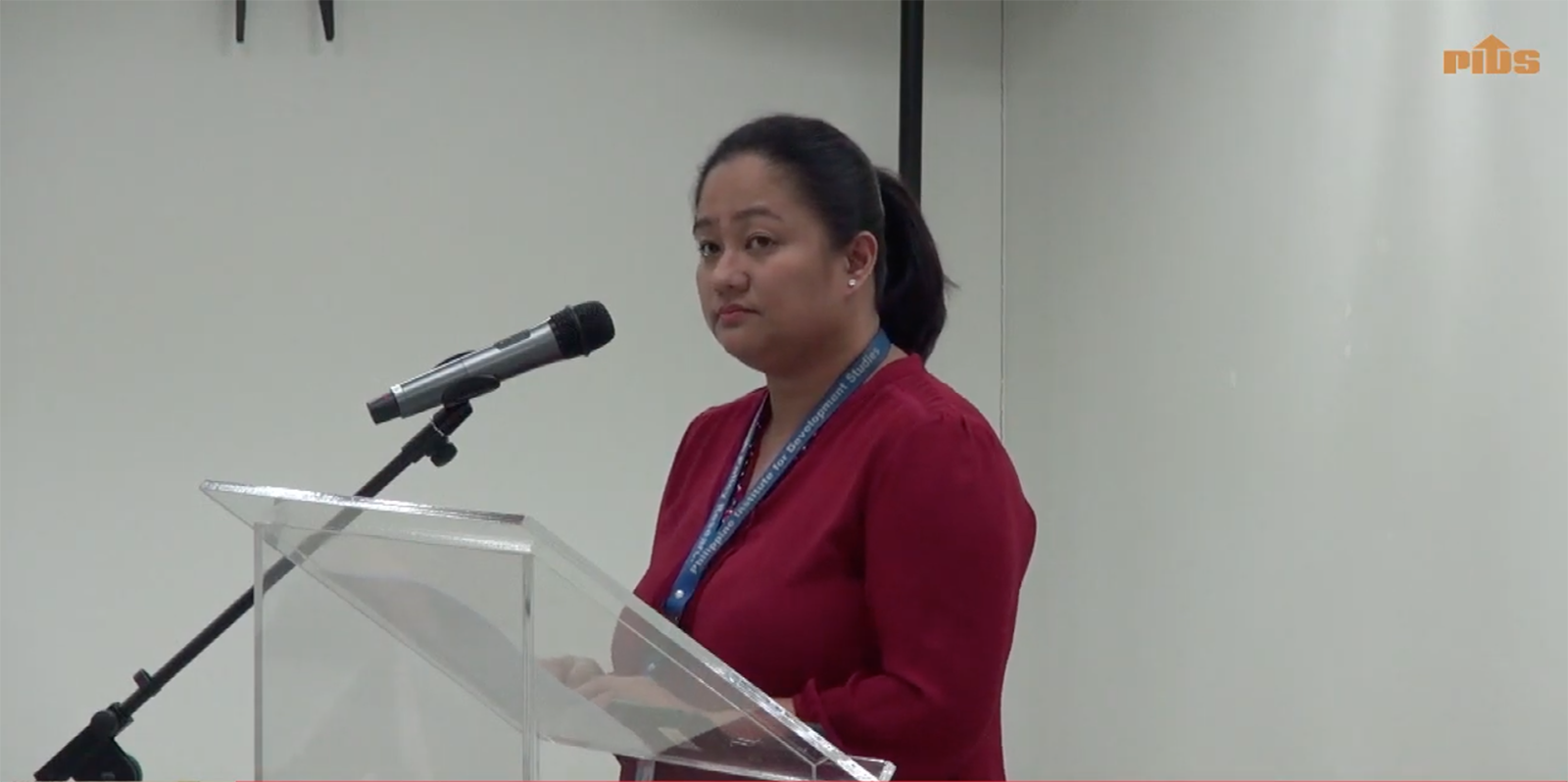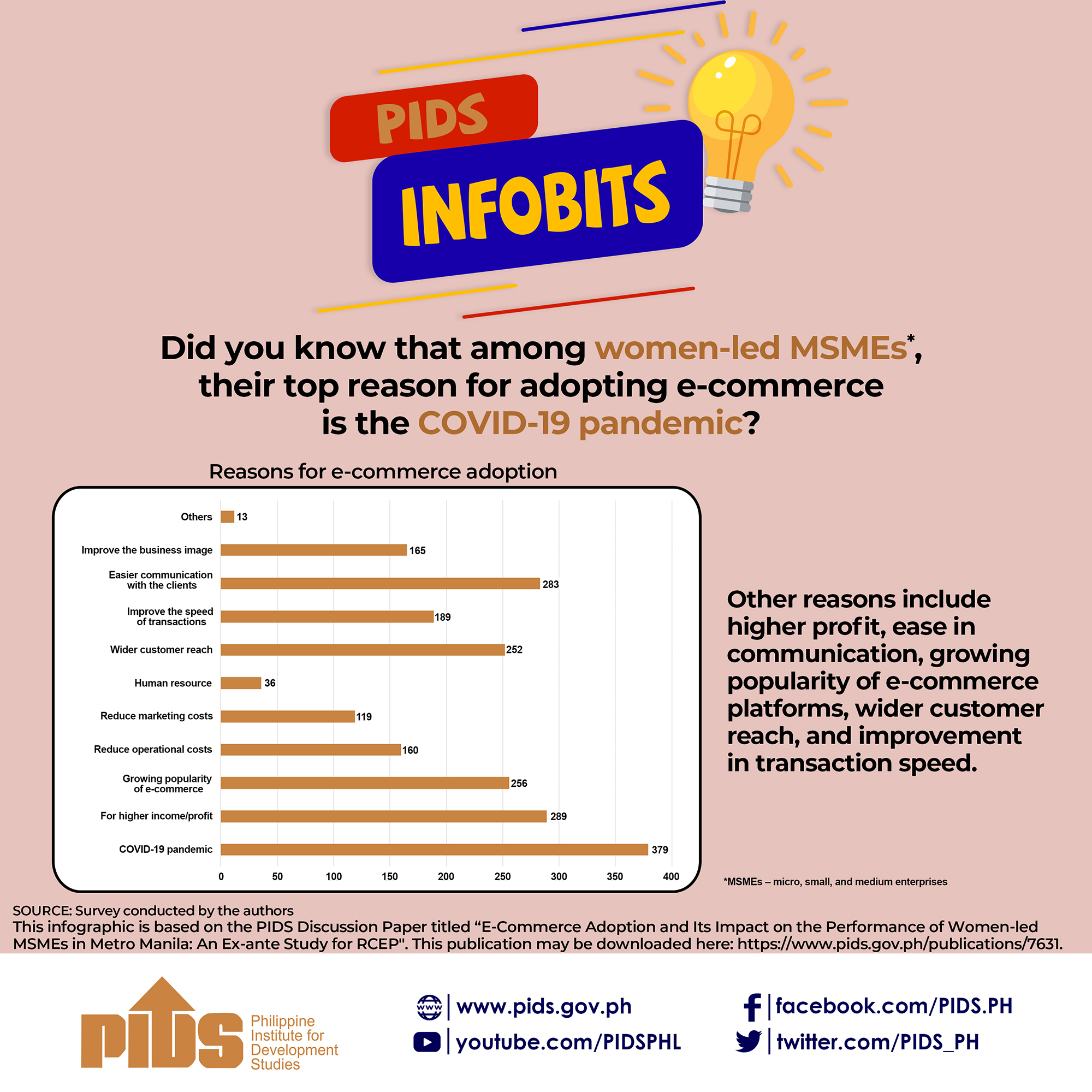Firms, particularly small and medium enterprises (SMEs), should adapt to new technologies and be quick to anticipate new opportunities for diversification in order to become competitive in the international market.
This was the recommendation of Royce Elvin Escolar, Program Manager at the Asian Institute of Managements Policy Center, in his study with the Philippine APEC Study Center Network (PASCN) and Philippine Institute for Development Studies (PIDS) titled, An Analysis of Industry Specific and Sector-Specific Impacts of a Japan-Philippines Economic Partnership Agreement.
According to Escolar, the hesitancy to use new technology is prominent in the SME sector. Bureau of Domestic Trade Director Meynardo Orbeta was quoted as saying, the initiatives of the Department of Trade and Industry (DTI) to assist SMEs to set up online catalogues received a lukewarm response from SMEs based in the provinces for fear that exposing their products and designs to global market will result in someone stealing their designs.
Thus, sustained education is needed in this sector on the areas of intellectual property protection and benefits of information technology (IT) for SMEs particularly in e-commerce, Escolar suggested.
The researcher also cited that most Filipino exporters utilize the internet only for communication purposes and not for business transactions such as online biddings. He also noted that the lack of infrastructure support in terms of availability of Internet service providers (ISPs) and applications is also deterrent to SME adoption of e-commerce.
This was the recommendation of Royce Elvin Escolar, Program Manager at the Asian Institute of Managements Policy Center, in his study with the Philippine APEC Study Center Network (PASCN) and Philippine Institute for Development Studies (PIDS) titled, An Analysis of Industry Specific and Sector-Specific Impacts of a Japan-Philippines Economic Partnership Agreement.
According to Escolar, the hesitancy to use new technology is prominent in the SME sector. Bureau of Domestic Trade Director Meynardo Orbeta was quoted as saying, the initiatives of the Department of Trade and Industry (DTI) to assist SMEs to set up online catalogues received a lukewarm response from SMEs based in the provinces for fear that exposing their products and designs to global market will result in someone stealing their designs.
Thus, sustained education is needed in this sector on the areas of intellectual property protection and benefits of information technology (IT) for SMEs particularly in e-commerce, Escolar suggested.
The researcher also cited that most Filipino exporters utilize the internet only for communication purposes and not for business transactions such as online biddings. He also noted that the lack of infrastructure support in terms of availability of Internet service providers (ISPs) and applications is also deterrent to SME adoption of e-commerce.

